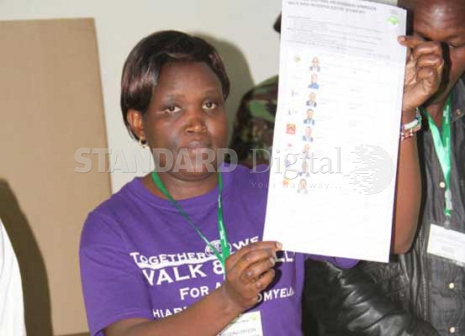×
The Standard e-Paper
Join Thousands Daily

After nearly three months of push and pull, the much contested October 26 repeat presidential election came to pass on Thursday with little surprises.
As expected, Opposition strongholds of Raila Odinga staged massive demonstrations to prevent voting in their areas, while regions aligned to President Uhuru Kenyatta witnessed impressive voter turnout.